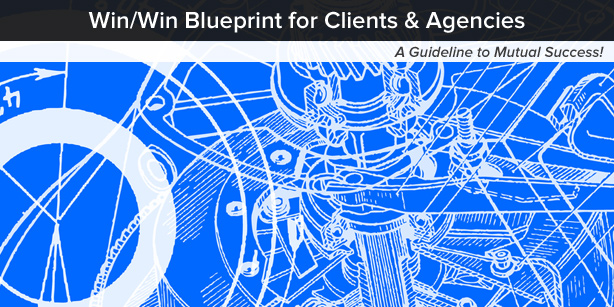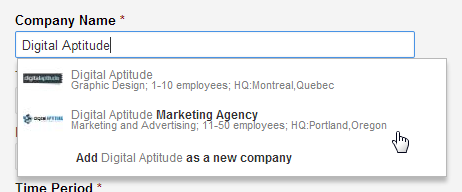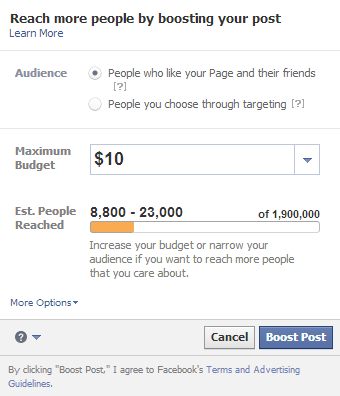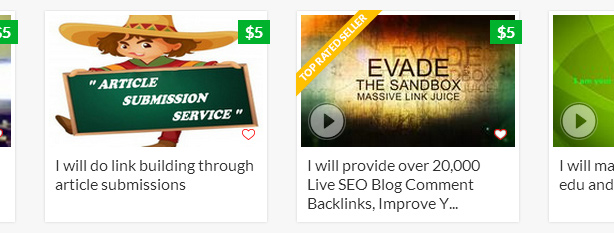
Quick Navigation
- Introduction
- Marketing Channel Collaboration
- Social Media
- Search Engine Optimization
- Link Building
- Communication
INTRODUCTION
We work with a wide variety of clients. Every client is different; every client has individual needs and areas they want addressed.
While goals, timelines and deliverables are discussed with every client at the beginning of a campaign (as well as monthly and quarterly), there’s always more that can be done. Many clients are often eager to participate, but without guidance, contributions can often be more harmful than helpful. This article aims to solve that.
Clients:
Prior to charging forward with a new idea, reference this guide for a list of considerations.
Agencies:
This guide is meant to help clients help you (help them). Feel free to use it however you see fit. If you have anything to add, please leave it in the comments.
MARKETING CHANNEL COLLABORATION
- Are you running paid ads on another website?
- Are you running ads on TV and/or radio?
- Do you have a PR team?
- What other ways are you working to promote your site, business, brand, product(s) and/or service(s)?
Collaborating with your digital marketing agency in these situations helps ensure that you are taking full advantage of your online presence. Your agency can also help you develop a URL tagging strategy for tracking the impact of your efforts in Google Analytics.

Data is power.
SOCIAL MEDIA
Have Employees Endorse Your Company
- Have all employees like your company on Facebook.
- Have all employees follow your company on Twitter.
- Have all employees follow your company on Google+.
- Have all employees select your company’s LinkedIn page when adding their “Company Name” (see how to set up a company page):

Have Employees Promote Content via Social Media
Whether it’s you, your employees, your agency, your friend or your enthusiastic five-year old, a lot of time goes into producing content. Unless you are already extremely well known in your space, even outstanding content often requires an “exposure” nudge.
What better head start than to have your own employees promote each piece of new content via their social media accounts? If they have reservations about sharing such content on their personal accounts, consider suggesting that they set up “company” accounts for company-related updates (and industry-related content). While they’re at it, have them do so through your site’s social-sharing icons to boost share counts:
![]()
Engage Your Audience/Customers
If you don’t socialize with your customers on social media, you’re doing it incorrectly. Engage your customers, respond to inquiries in a timely manner, and be sociable. If you receive a negative review, address it. If you can help clarify something for a potential (or existing) customer, do it.
Boost Your Facebook Posts
 If your agency is also handling your social media accounts, this is likely already happening; if not, it’s very straightforward and extremely effective!
If your agency is also handling your social media accounts, this is likely already happening; if not, it’s very straightforward and extremely effective!
Simply choose which post you want to boost, click the blue “Boost Post” button, pick an audience, set your maximum budget and BOOST AWAY!
Without paying to boost your posts, organic exposure in your fans’ news feeds will be extremely limited. Fortunately, even $5 will make a big difference.
If your budget is tight, choosing “People who like your Page and their friends” for your audience will get you more bang for your buck.
Note that you typically shouldn’t post to your company’s page more than once per day.
While you’re at it, consider also paying a small amount of money each day to promote your company’s page.
This is separate from, and in addition to, any individual posts that you choose to boost.
Related: Why Every Business Should Spend at Least $1 per Day on Facebook Ads
Here are some additional Facebook resources:
SEARCH ENGINE OPTIMIZATION
Beyond any items already covered by an SEO Audit or within an ongoing optimization plan, there are several things to keep in mind any time you add new content or products to your website:
- Write unique, relevant, engaging title tags for each page and limit their length to somewhere between 54 and 59 characters. Shorter is fine, but with Google’s recent redesign, the amount of space you have available has been reduced; it used to be that somewhere between 60 and 68 characters would (usually) fit, but that’s no longer the case.
Having longer title tags isn’t going to hurt your ability to rank, but it will cause your page titles to be truncated in Google’s results (which may hurt click-through rate (CTR)). - Make sure that a single <h1> tag is being used at the top of each page. Ideally, it should include at least a portion of what you have in the page’s title tag so that visitors aren’t confused when they reach your site.
Not having a <h1> tag that is similar to your title tag will often cause visitors to think they landed on the wrong page and hit their “back” button. - Write unique, relevant meta descriptions for each page and limit their length to 140 characters for time-stamped articles, 156 characters for articles/pages without time stamps.
New Articles
- Make sure each article is written by an author who has a linked Google+ profile (for Google Authorship and its many benefits). Here are additional implementation instructions.
- Include images throughout each article with relevant file names, descriptive alt tags, and fun/helpful title tags:
<img src=”/wp-content/uploads/social-sharing-icons.png” alt=”Social Sharing Icons” title=”An example of ShareThis in action!” />
New Products
- Take the time to write unique product descriptions for every new product that you add to your catalog; don’t rely on only manufacturer descriptions. Sites such as Copyscape can come in handy for ensuring uniqueness.
- Pin images of each new product on Pinterest.
LINK BUILDING

Amazing, right?
You’re supposed to be rolling your eyes right now.
At $5 a pop, fiverr gigs such as these are dangerous. There are a handful of hidden gems, but you have to know what to look for; it’s best that you simply stay clear of fiverr altogether. There are an ever-growing number of ways to damage your site’s link profile; it’s critical that you don’t look for shortcuts and damage your site to the point of no return.
Dangerous Link Building Methods to Avoid
- Do not purchase any sort of cheap link building service, article submission service, directory submission service, blog commenting service, etc.
- Do not submit your content to sites such as EzineArticles.
- Do not submit press releases over anything unworthy of a press release.
- Do not be persuaded by the incredible deal being offered to you via e-mail from the charming guy or gal, located overseas, with whom you have never previously conversed. It will not end well.
In short, don’t try to supplement with cheap services.
There are, however, a number of relatively safe options that you and your team can pursue as time becomes available:
Safe Link Building Options for Employees
- Go after “local” opportunities, including a link on your city’s/cities’ “Chamber of Commerce” website(s), links on your local “library” websites, etc.
- Join various associations and organizations (and get a link in return).
- Sponsor various events/etc. (and get a link in return).
This is also great for brand recognition. - Answer industry-specific questions on Quora.
- Participate in discussions on communities relevant to your industry/niche.
Not all posts should link back to your site! Be helpful; become an authority. - Repurpose content! One infographic, for example, can be turned into an animated video or sliced and submitted to SlideShare. Also look at utilizing sites such as Scribd and ISSUU.
There are many additional link building strategies beyond the methods above, but the above options are safe for just about any member of your team to tackle.
COMMUNICATION
The key to any successful relationship is clear communication. If you want a lasting, fruitful partnership with your agency, it’s important that both parties are comfortable with the level/frequency and style of communication. Some people prefer to have calls, others are much more efficient at addressing questions/issues via e-mail.
Though time availability varies by the size of each agency and number of resources available, note that overly frequent calls can reduce the time and resources available to work on your campaign; several hours on the phone are several hours that could have been spent working toward achieving campaign goals.

Trust Your Agency
“Trust, but verify.”
—Ronald Reagan
Always remember that you hired your agency for their expertise. It’s great to ask questions and offer feedback/input, but you need to be willing to let agencies do what they do best in order to see results. Unless you have serious concerns about the change of a title tag, for example, trust that your agency is suggesting the change because they believe it will have a positive impact on your campaign.
Transparency is also very important (in fact, it’s one of our core values); it’s your agency’s responsibility to let you know when something isn’t working or if something needs to be changed, and to then offer a solution.
Be Open to Change
Tying into the points above, it’s important that you are open to change when that change can help improve your online presence. If your agency makes suggestions to better the efficiency of your navigation, for example, consider it. Even if your navigation has been a certain way for months/years, there’s usually always room for improvement.
It’s an agency’s job to tell you when your baby is ugly.
Nicely, of course.
Respond Promptly
It doesn’t have to be right away, but if making progress on a task is dependent on your reply, please respond as soon as you are able.
Be Excited About Your Products and Services
If you aren’t excited about your own products and services, it makes it that much more difficult for an agency to feel excited. An agency can still do a good job regardless, but when an agency knows you’re excited and feels excited themselves, it tends to pay off for everyone.
CONCLUSION
When an agency is successful, their client is successful. When a client is successful, their agency is successful.
This guide will be updated regularly with additional areas requiring guidance, structure, and focus.

